- Offensive Techniques & Strategies
Clock Management & Fouling
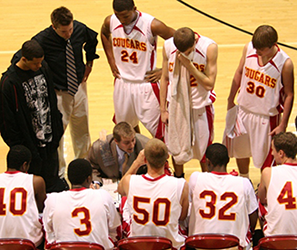
Hopefully, you are well prepared and in control of the game so that you will not need to resort to clock management. However, if you ever fall behind late in the game don't give up! It is common place to see players and teams give up and throw in the towel when trailing by more than ten points with less than three minutes to play.
By using time outs and fouls, the last few minutes of a game can be an eternity. At this point in the game, the clock is your worst enemy, not the opponents, so every second counts. Therefore, do not let precious time run off the clock before fouling. If you are going to foul, foul right away.
| Never Give Up | Must Foul | When to Foul | How to Foul | Who to Foul | End of Game Substitutions | Rebounding |

"The temptation to quit will be greatest just before your are about to succeed."
(Old Chinese Proverb)By using time outs and fouls, the last few minutes of a game can be an eternity. At this point in the game, the clock is your worst enemy, not the opponents, so every second counts. Therefore, do not let precious time run off the clock before fouling. If you are going to foul, foul right away.
Here is an example of a game that was won in regulation time despite falling behind 90-75 (15 points) with 1:47 to play:
 End of Game Play by Play Report
End of Game Play by Play Report

Must Foul Situations
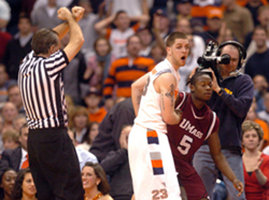
Fouling plays a critical part in the out come of the game, especially when it comes playoff time. Fouls were added to the basketball rule book to penalize; however, intelligent players and teams can use fouls to their advantage. However, when it comes to fouling to gain a competitive edge do not assume that players know how and who to foul at the end of the game. If you just tell a player to go foul, they are most likely to grab or hammer an opponent, and pick up an intentional foul.
Players need to be know how, when and who to foul.
Players need to be taught the technique of going for the quick steal or trap, and when unsuccessful, to foul immediately.
Players must practice this art of fouling and clock management.
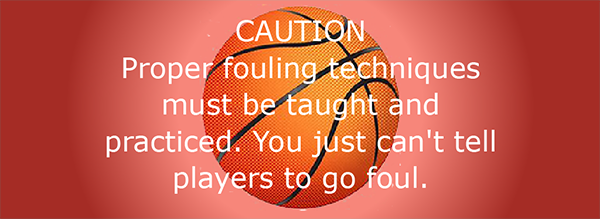

Knowing When to Foul
In order to keep your opponents out of the bonus situation as long as possible, try not to commit fouls early in the period. Play smart and foul for profit by:
Fouling a player on a break away before they can get into shooting position for an easy lay-up.
Taking an offensive charge on the passer on a 3 on 1 or 4 on 1 break away situation.
Fouling when leading at the end of a period and have fouls to give.
Note: All too often games are lost on last second shots because a team was either unaware that they had a foul(s) to give or they where unprepared to foul correctly. A few years ago, the University of Washington men's team was beaten by Stanford on a last second shot despite the fact that they had two fouls to give and Stanford had to go the length of the court with four seconds remaining on the clock.
Fouling to get a substitute into the game instead of wasting a timeout.
Fouling the opponent's poorest free throw shooters when trailing late in game.

Knowing How to Foul
Proper fouling techniques must be taught and practiced. When taking a deliberate foul, players should first deny the passing lane and go for the ball. A steal is much better than a foul. If unsuccessful, players should foul by trying to knock the ball out of their opponent's hands. Every once and a while they just might knock the ball loose. Also, officials will, occasionally, be out of position and not call the foul.
Avoid the intentional foul. Most coaches assume players know how to foul. However, in reality, when a coach tell the players to foul, they will simply go out and just push or grab an opponent resulting in an intentional foul. Since the opponent gets to shoot free throws and retains ball possession, this is disastrous.
When on defense, players should avoid going behind the basket. Nothing good ever happens to a defensive player behind the basket. When taking a charge players should make every attempt to take it outside the three second area before the opponent can get the shot off.
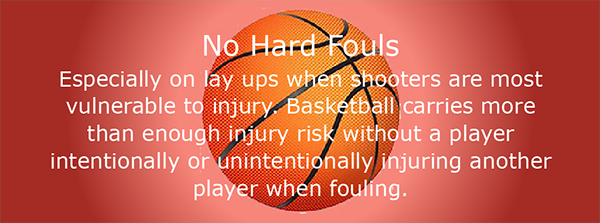
Play hard, but play fair. Basketball carries more than enough injury risk without a player intentionally or unintentionally injuring another player when fouling. In addition, there is never any satisfaction or sense of accomplishment in winning when the victory is achieved by injuring an opponent or breaking the rules of the game.
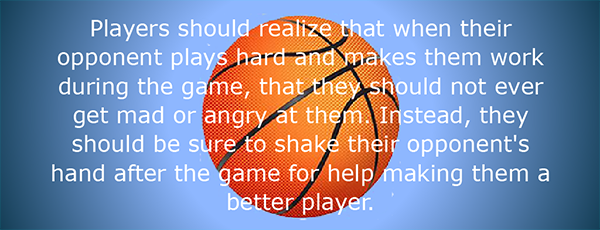
Eliminate the three point play. Giving up a three point play by fouling a player in the act of shooting is a RBP (Really Big Play). Instead of fouling a shooter and giving up a three point play, it is better to just concede the shot and let them score. All you have to do is to score on the next possession to "erase" or cancel it. However, if you foul the shooter and give up a three point play, you will then have to not only score on your next possession, but also come up with a defensive stop and score a second time to erase or cancel it.
Note: Really Big Plays are plays that can turn the game around. Other RBP's are taking a charge, a "wolf" (stealing the ball from behind on a break away), and an offensive rebound on a missed free throw.

Knowing Who to Foul
Players should be well aware of which players to foul and which players not to foul. When "Hack a Shaq" strategy is needed to stop the clock, do not go by free throw percentages alone. It is important to know which players play well under pressure. A mediocre free throw shooter can become a great free throw shooter when the game is on the line, and, conversely, a great percentage free throw shooter can struggle during crunch time.
Knowing Who NOT to Foul
Always avoid fouling the opponent's "Star" player. When faced with a task of guarding the opponent's leading scorer the worst thing the defender can do is to foul them and send them to the free throw line. Make them earn every point they get. Also, never foul a player who is struggling from the field and is having a bad shooting night. Going to the line and making a couple of free throws will certainly take the lid off the basket for any player.

End of Game Substitutions
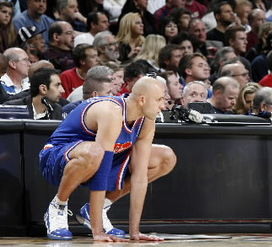
When fouling to the stop the clock at the end of the game, coaches should make defensive substitutions whenever possible and put players into the game that can afford to foul instead of losing their best players because of disqualification. Once a foul has been committed, stopping the clock, players in foul trouble can be reinserted back into the game.
For example, a few years ago, by not substituting for players in foul trouble at the end of the game may have cost Kansas an opportunity for the NCAA championship. After a time out, Indiana inbounded the ball in the back court with 8 seconds to play, two Kansas players immediately trapped the player with ball in the corner (primary trap zone). But since both players had four fouls neither one fouled. A foul was finally committed only after the ball was passed out of the trap to the opposite side of the court and dribbled across the mid court line. By allowing precious time to run off the clock, Kansas' hopes for a comeback ran out of time.

Rebound !!!
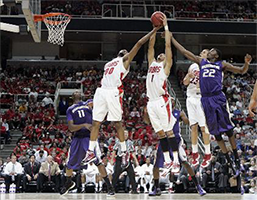
When trailing at the end of a close game, on offense, second efforts are vital. Assume all shots will be missed and aggressively attack the offensive boards. Missed shots should end up as good passes and put backs.
Defensively, on last shots do not watch the ball. Every defender must "Box Out" even if it meaning face guarding.

Return to Winning Close Games - Click Here
Return to Coaching Strategies - Click Here
Return to HoopTactics - Click Here
© 2026 HoopTactics All Rights Reserved.

